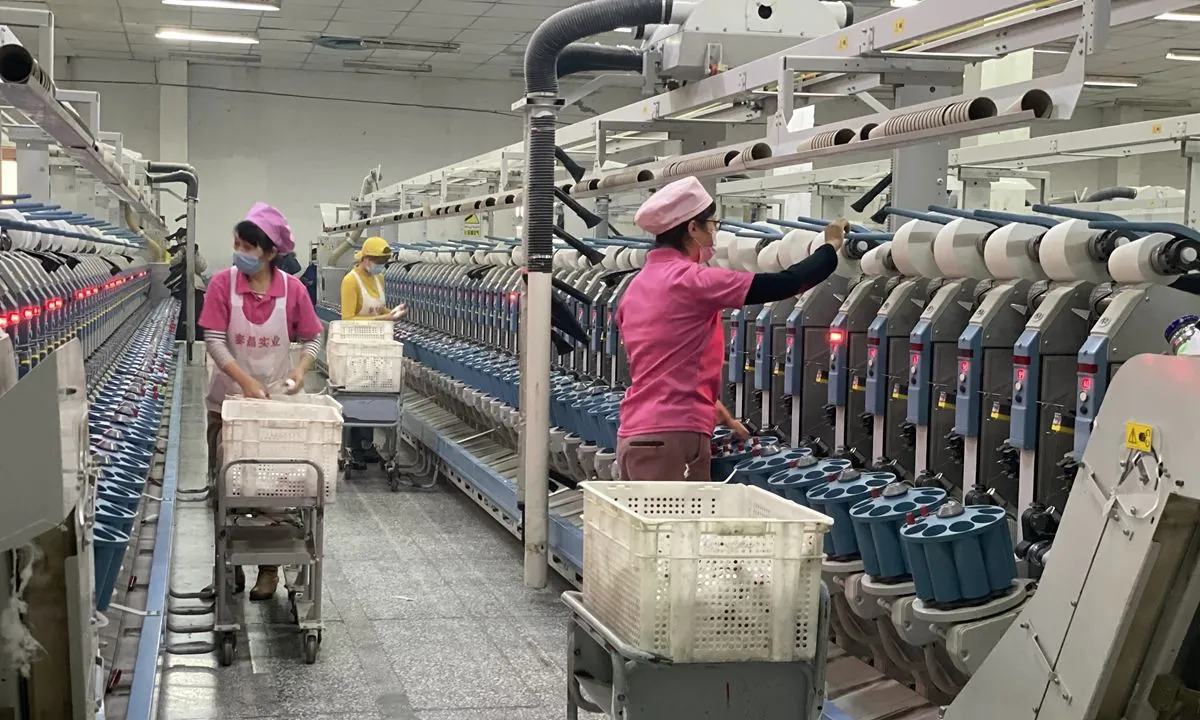U.S. Expands Import Ban on Chinese Goods Over Forced Labor Concerns
The Department of Homeland Security has broadened its import ban to include Chinese steel and artificial sweetener manufacturers, citing forced labor issues in Xinjiang. This move expands U.S. efforts to counter human rights abuses in supply chains.

The U.S. Department of Homeland Security (DHS) has expanded its efforts to combat forced labor in global supply chains by prohibiting imports from two Chinese manufacturers. This decision, announced on October 2, 2024, marks a significant development in the enforcement of the Uyghur Forced Labor Prevention Act, which was signed into law by President Biden in December 2021.
For the first time, a China-based steel company and an aspartame sweetener business have been added to the entity list under this act. This move broadens the scope of U.S. efforts to counter products tied to human rights abuses, particularly those originating from China's Xinjiang region.
Robert Silvers, undersecretary of Homeland Security for policy, emphasized the commitment to eliminating forced labor from U.S. supply chains, stating, "No sector is off-limits. We will continue to identify entities across industries and hold accountable those who seek to profit from exploitation and abuse."
The Uyghur Forced Labor Prevention Act, passed with bipartisan support, addresses allegations of human rights abuses against the Uyghur population and other Muslim minorities in Xinjiang. This region, China's largest administrative division by land area, is home to approximately 12 million Uyghurs and has significant economic importance due to its oil and natural gas reserves.
Initially, the act targeted sectors such as solar products, tomatoes, cotton, and apparel. However, over the past few months, enforcement has expanded to include aluminum, seafood, and now steel and artificial sweeteners. This expansion reflects the ongoing concerns about the pervasiveness of forced labor in various supply chains.

The addition of a steel manufacturer to the entity list is particularly noteworthy, given China's dominant position in the global steel industry. As the world's largest producer, accounting for over 50% of global production, this decision could have significant implications for international trade and industry practices.
Similarly, the inclusion of an aspartame sweetener business highlights the reach of these concerns into the food industry. Aspartame, discovered in 1965, is used in over 6,000 consumer products worldwide, underscoring the potential impact of this decision on global supply chains.
The expansion of the entity list, which now includes 75 companies accused of using or sourcing materials tied to forced labor in Xinjiang, represents a shift in the U.S.-China trade relationship. This approach increasingly takes into account national security and human rights concerns, moving beyond purely economic considerations.
"Today's actions reaffirm our commitment to eliminating forced labor from U.S. supply chains and upholding our values of human rights for all."
This evolving stance has not been without controversy. The Chinese government has consistently refuted claims of human rights abuses in Xinjiang, describing them as fabrications and defending its policies as necessary measures to combat terrorism and ensure stability. Beijing has accused the U.S. of using human rights as a pretext to suppress China's economic growth.
The implementation of the Uyghur Forced Labor Prevention Act has placed increased responsibility on importers to thoroughly understand and monitor their supply chains. Robert Silvers noted that this shift has demonstrated that the U.S. can "do the right thing" without halting normal trade, striking a balance between ethical concerns and economic necessities.
As the world's two largest economies, the actions taken by the U.S. and China in this arena have far-reaching implications. The concept of forced labor, as defined by the International Labour Organization, continues to be a point of contention in international trade relations.
The newly added companies to the entity list are Baowu Group Xinjiang Bayi Iron and Steel Co. Ltd and Changzhou Guanghui Food Ingredients Co. Ltd. Their inclusion serves as a reminder of the complex interplay between trade, human rights, and international relations in today's globalized economy.


































